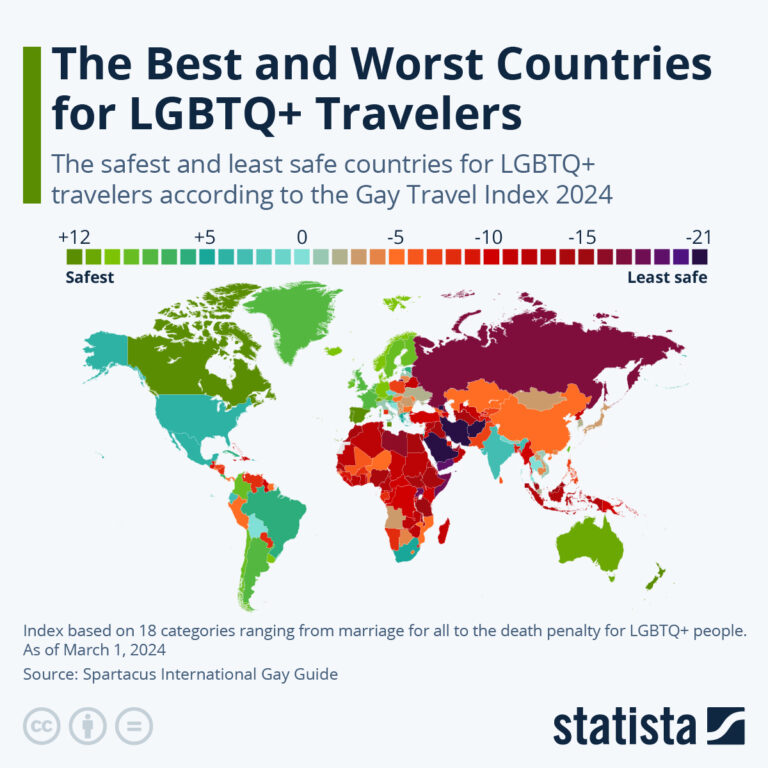To help LGBTQ+ tourists travel safely, the German portal Spartacus began publishing the Gay Travel Index in 2012. The 2024 edition compares 213 countries and territories based on the situation for lesbian, gay, bisexual, transgender, intersex and queer people in each region.
According to the index, Malta, last year’s top destination, now leads the list as the safest and most open place for LGBT+ travellers in 2024, alongside Spain, Canada, New Zealand and Portugal, with these five countries scoring 12 points each. The report also showed that Estonia made the biggest progress over the past year, gaining six points (up from two in the previous index), thanks to the approval of a law legalising same-sex marriage in 2023. Appearing for the first time in the 2024 rankings is Uruguay, which shares third place with Denmark, Iceland, Germany and Norway, all with 10 points each.
At the other extreme are Saudi Arabia, Iran, Russia’s Chechen Republic and Afghanistan, all with a minus 21 point rating, suggesting they are dangerous countries for LGBT+ travellers, with gay people being persecuted and even killed. Russia also sits quite low on the list (minus 17 points), once again “having significantly strengthened anti-LGBT+ legislation and equating the movement with extremist organisations”.
Taiwan had the highest score in Asia, ranking 13th, alongside Sweden, Luxembourg, Ireland, Finland, Colombia, Chile and Austria. Thailand could move up the rankings this year following new legislation on same-sex marriage, which is expected to be enacted in 2024, according to Spartacus. India was ranked 44th, alongside Guam, Gibraltar and Ecuador.
To develop the index, the creators looked at 18 categories, ranging from marriage for all to the death penalty for LGBTQ+ people. They focused on various parameters, including political decisions that affect queer people, legal frameworks, and the presence or absence of incidents of violence against them.
According to the report’s authors, the index has been created with all kinds of travellers in mind, whether they are considering travelling to a country where the LGBT+ community is accepted and loved in society, or those consciously considering travelling to a country to join in dialogue with local queer communities who are oppressed.

